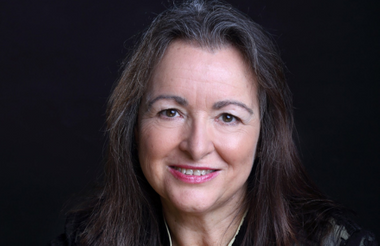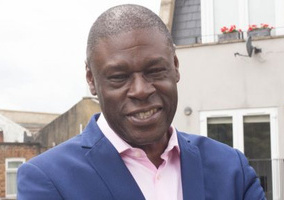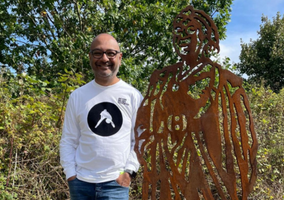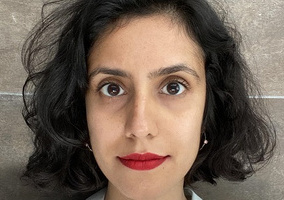In 2000, Linda Elsegood was diagnosed with multiple sclerosis (MS), an incurable condition that affects the brain and spinal cord.
By October 2003, Elsegood was bedbound, with the left-hand side of her body numb with pins and needles. She had lost hearing in her left ear and had double vision and bad vertigo alongside other MS symptoms.
“I was choking on my food and slurring my words,” she says.
“Cognitively, I was like somebody who’d had a stroke. I couldn’t recall vocabulary and everything I said got muddled. I had no balance, stumbled and fell.
“I slept 20 hours of the day, couldn’t feed and dress myself or get up. My quality of life, on a score of one to 10, was probably one.”
Elsegood was told she had secondary progressive MS, which means that symptoms would be there all the time and get slowly worse, and that nothing more could be done for her.
“There was no plan b, no medication. That was it. I had to live with this. It wasn’t living, it was awful.”
Finding a treatment
As her condition worsened, Elsegood went on the internet to find out whether other people with MS had any advice.
“I managed to find a chat room in America for people with MS and everybody said the same thing: ‘Have you tried Low Dose Naltrexone (LDN)? If it doesn’t do you any good, it’s not going to do you any harm.’”
Eventually, she found a doctor in Wales who was one of the first in the UK to prescribe LDN and agreed to prescribe it to her.
At first, the drug had little effect but after three weeks, her symptoms slowly started to recede.
“It was a long process that took me 18 months to get to where I am today. I came to a crossroads and had to make a decision: Did I want to carry on with my life or help people who were in the deep, dark place I was in?
“It was a no-brainer. I wanted to help other people. I spoke to the MS Society, neurologists, everybody and the only way I could be taken seriously and not be some wacky nut case woman – as I’ve got no medical background – was to become a registered charity.”
A rocky start
The LDN Research Trust registered as a charity in 2004. However, doing so was not straightforward, Elsegood says.
“It took five months of putting forms in, answering other questions, getting more questions and so on to become a registered charity.
“The Charity Commission said it was because it was called ‘the LDN Research Trust’ and we couldn’t have ‘research’ in a charity.
“I said: ‘But what about Cancer Research UK, which has ‘research’ in it?’ They came back and said: ‘Yes, but cancer is a condition, LDN is a drug.’ So, we went round and round for a while and eventually, it was granted.”
‘Voluntary CEO’
Twenty years on, the LDN Research Trust now has a network of medical and pharmacy advisers and researchers and claims to have helped around 110,000 people.
Since its establishment, the charity has produced six documentaries, published four books on LDN, with another one coming out this year, arranged many seminars and conferences, and held webinars and radio shows.
“We make sure that our website is a go-to website. We feel we’re doing a service not only to patients but doctors as well.
“There’s a lot of misinformation on the internet and I wanted a website that was scientifically based. I don’t want ever to be called that ‘wacky woman’ who is giving out misinformation.”
The charity does not employ any staff and is volunteer-led, with Elsegood doing most of the work herself.
She calls herself “the voluntary chief executive officer” of her charity.
“We work hard and there are certain things we can’t do in-house that we have to pay for. We do it for the love of helping other people and every penny goes towards the charity.
“We do everything we can to help patients who are suffering from autoimmune diseases, cancers, chronic pain, etc and support doctors and pharmacists who haven’t prescribed LDN but want to and need guidance and help.”
‘I haven’t got to my goal yet’
A talented mathematician at school, Elsegood initially resisted advice she had been given to work for a bank, choosing instead to work in hotel and catering management before becoming a domestic bursar in a boarding school.
“I went to a Catholic convent school and the nuns told me I’d got to go into banking. Being rebellious, banking was the last thing I was going to do.
“Hotel and catering management wasn’t something seemly for young ladies. So, I picked a thing that was most likely to upset them.”
But the “nuns were right all the way along” as Elsegood ended up working as a bank manager.
Although she does not have a medical background, she says her ability to focus (when she can) helped her to set up the charity.
“I’m a spreadsheet person and make a list of what I have to achieve to get to the goal and then work through it. That’s how my mind works.
“I just did it because I didn’t know the enormity of it. I made a list of all the things I needed to get done to get to the next level. It went on and on and I kept working.
“I get criticised for the fact that I’m still very driven and have goals. People say: ‘Don’t you ever stop and look back at what you’ve achieved? You should be proud of yourself and what you’ve achieved.’
“I say: ‘No, because I haven’t got to my goal. The goal is to get LDN available for everybody and on the NHS where it could be a therapeutic benefit.’”
‘We wouldn’t want to change how we do things’
Elsegood says her charity can help most people access LDN, regardless of where they live in the world.
On its website, the LDN Research Trust says it has helped people “in countries throughout Europe; as well as the USA, Canada, West Indies, Australia, New Zealand, and beyond”.
The LDN Research Trust recorded an income of £209,000 and expenditure of £137,000 for the year to June 2023, according to data filed with the Charity Commission.
In terms of its funding, the charity charges an annual medical membership of £100 for LDN specialists to be listed on its website.
“We help them and they help us and it’s that money that keeps the wheels going around”, Elsegood says.
“The actual donations from patients are very minimal. Most of the people we deal with don’t have spare money and are struggling.”
Elsegood has often been asked why her charity does not charge people to access the information on its website, particularly as it has grown and its monthly bills have increased.
“But if we were to lock the website, even if we charged people £20 a year to access it, then we’d not be helping the people we want to. We want sick people to be able to access all our information for free. We don’t want to have to charge anybody. That, to me, wouldn’t sit well at all.”
Based on its annual income, the LDN Research Trust is a small charity but Elsegood says that it is not how people perceive it as “we do so many things”.
“People who don’t know how small we are think we have a PR department and human resources. I wear these different hats. I do the accounts and so on.
“People’s perception is that we’re big and people think we get funding but that’s not how it is. We’ve tried for grants and don’t qualify. What we’d like is some philanthropic giving.”
Asked about corporate partnerships, she thinks these might not be right for her charity.
“If we partnered with the wrong people, they might want to lock down the website and run it more as a business. We wouldn’t want to change how we do things.”
Related articles












